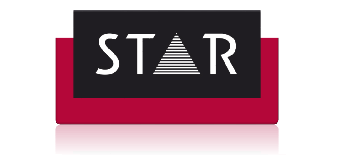What is Terminology?
According to the Oxford Dictionary, terminology is ‘the body of terms used with a particular technical application in a subject of study, theory, profession et cetera.
Terminology is the fundamental building block for all translation. It is the word, phrases and technical terms used to define things and create sentences. Since translation began as a profession, technical translators have developed word lists for translation purposes. Most lists contain two columns, the first consisting of terms in the source language and in the second column the corresponding term in the target language.
A terminology database or termbase looks like a dictionary to most people.
“If you can’t explain it simply, you don’t understand it well enough” — Albert Einstein
Translation and Terminology
Terminology in translation is actually an expanded dictionary as it can hold phrases and key terms used by a single company. Often a company will have its own preferences for the terminology used in its documents and files. For example, one company may prefer a term for an item such as a desk and another might prefer for it to be called table or small office table. This is important as if a translation is talking about desks and the company sells tables then this could be confusing for potential customers. The translation would be understandable but technically incorrect.
Another example might be “Common Rail Diesel Engine“. This is a complex term; knowing how to translate this term correctly is important for automotive translators. Specialist terms and words need to be defined and managed before a translation project begins.
Why use a terminology database?
It delivers consistent and standardized word lists which help translators to remain consistent in the usage of terms, e.g. a technical item in the first chapter of a technical manual will be the same as in the last chapter of the manual, and in the brochures, parts systems et cetera.
In domains that are fast developing and/or changing one cannot assume that there are domain specific dictionaries. To allow translators to adapt texts from one language to another, translators need to be able to create their own terminologies. This process is called Terminology Extraction.
When a translator is looking for a specifc term, they can look it up in the database instantly. Most translation editing systems have systems built in that allow translators look up technical terms in other languages as they translate.
Our teams of trained translators and terminology experts can review your original source documents and extract the key terminology for you. This is effectively the blueprint for your company language. This in turn is then translated first before we start translating your documents. This means, as we translate, we will always use the most appropriate term in your translation so, you will get a clean, consistent translation of all your documents.
Terminology is also important when several translators are working on the same project: It ensures that all the key vocabulary is translated the same way by all the translators. Teams can use cloud based terminology systems to manage company wide global dictionaries.
Why is terminology management is useful for your company?
Firstly it ensures you are technically accurate and consistent. So you look like a professional high quality company. Secondly, it helps you establish your brand. You can set up how you say things, what you call things and introduce a fixed writing style across all your documents and websites.
In STAR, we utilize our own TermStar and WebTerm technology for online dictionary management for our customers. We can help you create and manage your terminology in every language.


